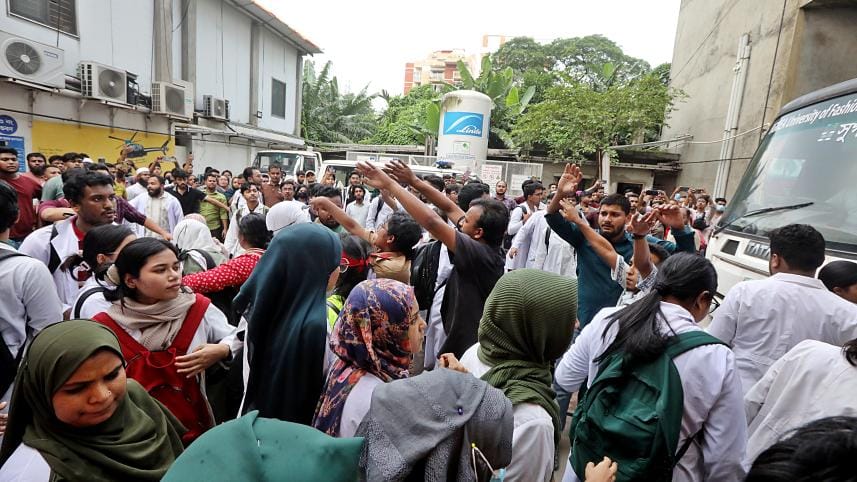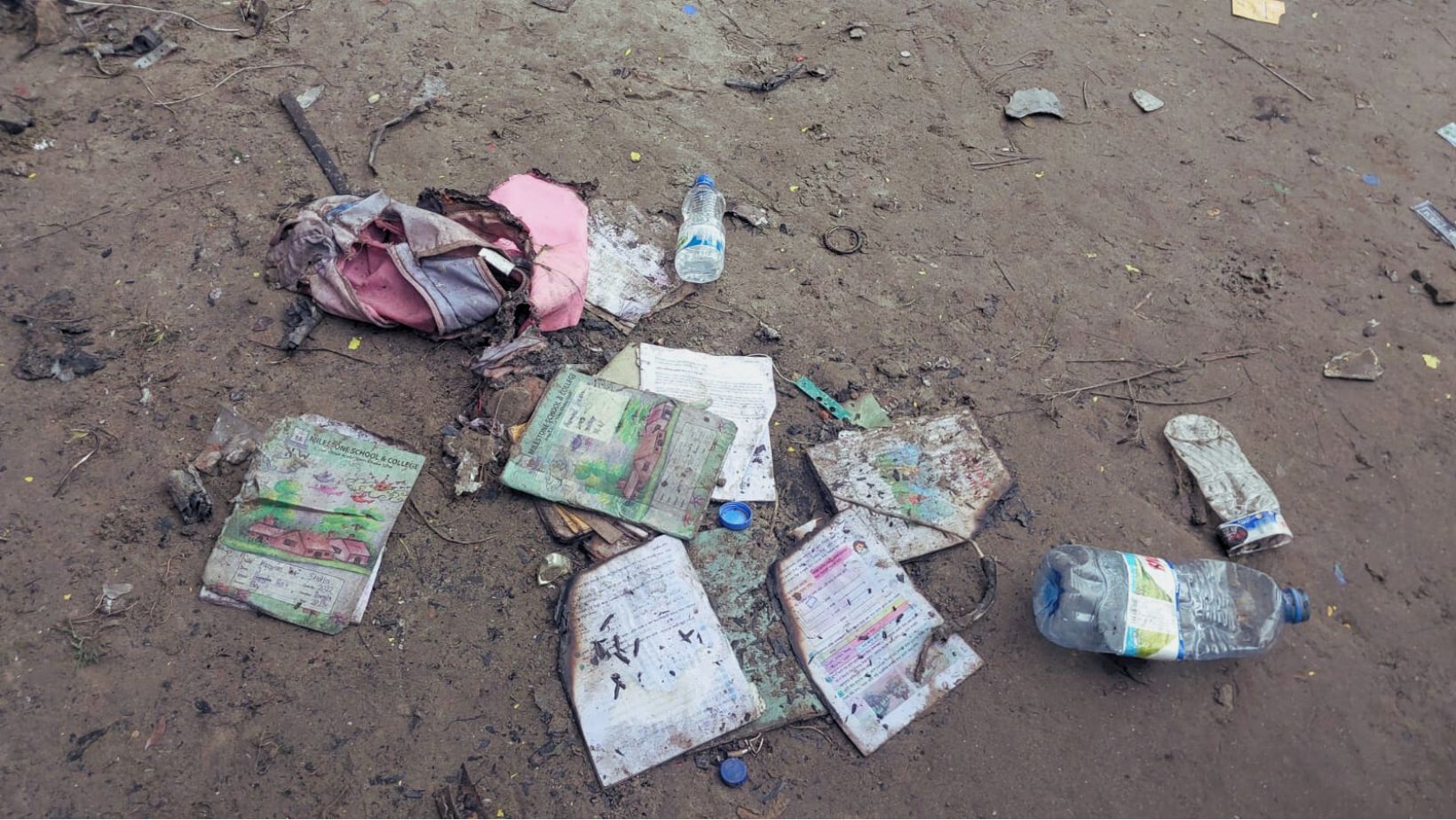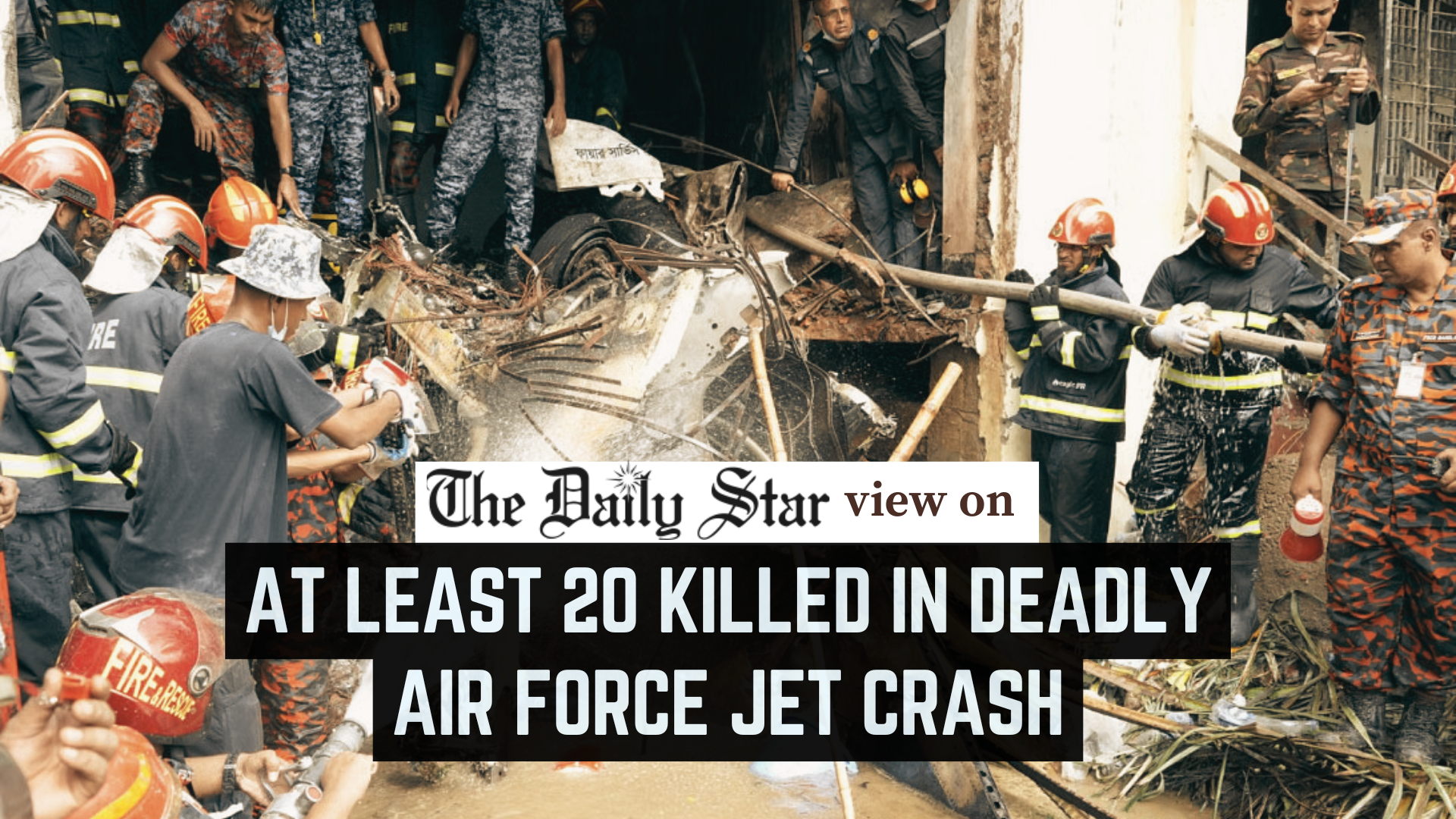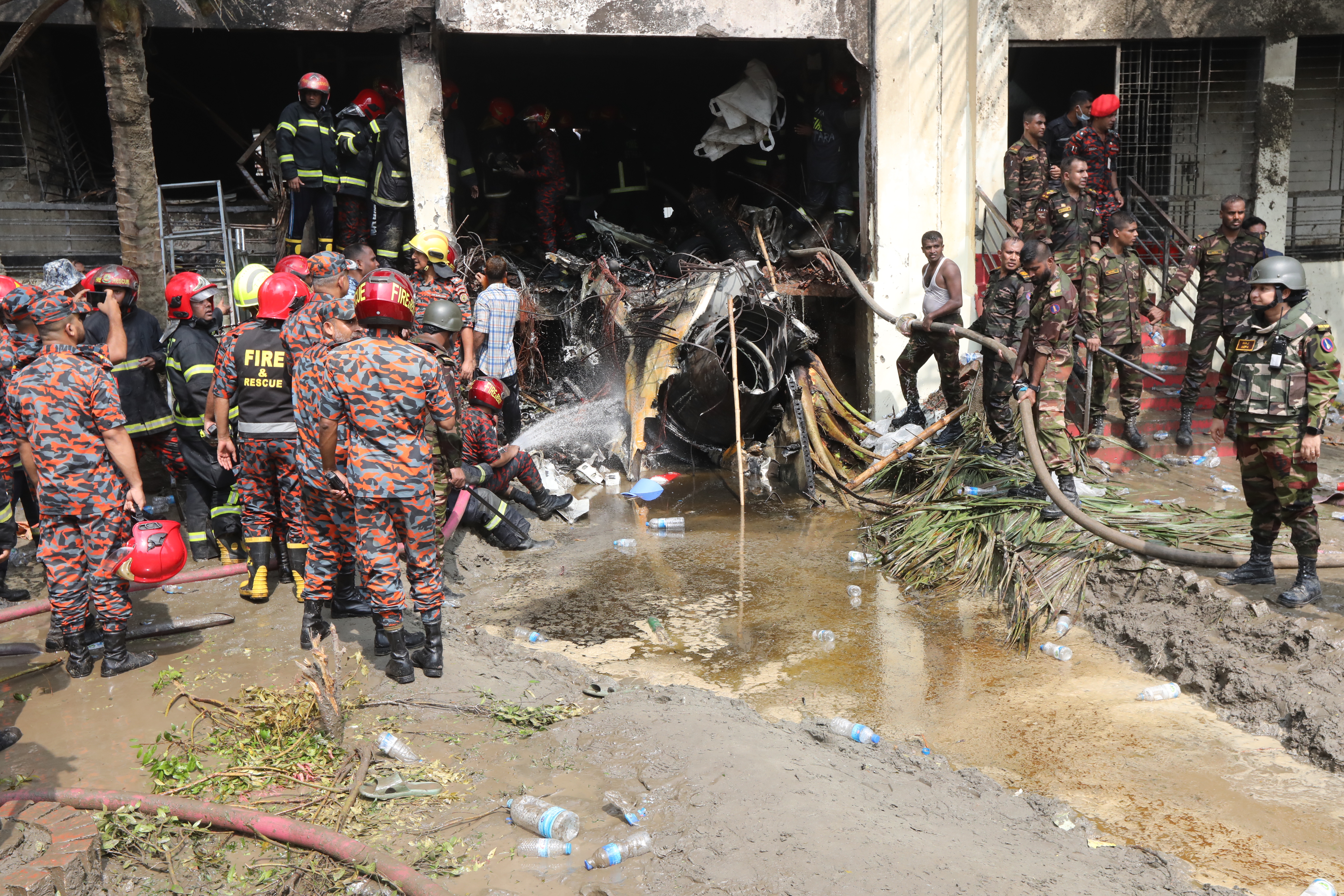We need a revival of our conscience

Picture this: a site of tragedy. Smoke still rising, glass shards crunching beneath frantic footsteps, children's screams piercing the air. Rescue workers are scrambling, running on adrenaline and desperation, to save lives. And yet, they are blocked, not by fire, not by debris, but by people. People who are not there to help or find their loved ones. They are just there to watch, to gawk at what was going on, as if this were some grotesque street theatre unfolding for their afternoon entertainment.
When a fighter jet crashed into Milestone School and College in Dhaka's Diabari on Monday, the world should have stood still. We should have all been gripped by the all-consuming urge to help somehow. Instead, we saw something far more frightening: we saw apathy, we witnessed a society desensitised to agony.
One journalist on the ground asked a woman in the crowd, "What are you doing here?" She replied with a smile, "I heard there was a fire incident. I have come to watch."
She went there "to watch" a fire incident—let that sink in.
This is not just a problem of social media addiction or morbid curiosity; it's the case of a spiritual, moral, collective rot. Are we becoming so desensitised to suffering that when we see children burning, we reach for phones first, not our conscience?
And it does not stop at the crash site.
At surrounding hospitals and the burn institute, nurses and doctors were doing what they do best: racing against time to save lives, providing comfort to broken bodies and shattered families. But then came the politics.
Not policy, not coordination, but politics.
Politicians descended upon the hospitals in droves. And no, they did not come alone. They brought their entourages and photographers, hungry for headlines and votes. Their groups blocked the emergency gates. Their supporters pushed past nurses. One nurse was reportedly seen begging them to leave so the injured could be brought in. She, too, was ignored. Because in their eyes, she was not part of the show.
This is not a one-off moral failing. This is systemic and widespread, and it is deeply familiar.
Have we become a people who treat other people's pain like it is our afternoon drama serial? Some of us see blood and ask, "Which channel is airing it live?" Some others walk past collapsed children to get a better angle for a selfie. It seems we perform grief for clout, and we weaponise tragedy for power.
I would like to believe we were not always like this.
I remember a Bangladesh that has always prided itself for the compassion and humanity of its people, for their instinct to help one another. But somewhere along the way, that impulse seems to have been stifled by the noise of virality, YouTube likes, political theatrics, and self-serving indifference.
Now, we crowd scenes of horror for spectacle, we block ambulances to make way for our "leaders," and we completely forget that behind every statistic is a name, a face, a family shattered beyond repair.
And here is what frightens me the most: if a plane crash killing and burning schoolchildren cannot shake us, what will? Where are the collective gasps? Where is the silence? The mourning? The mobilisation for justice?
Instead, we scroll. We click. We post. We conjecture theories. And then we move on.
What happened at Milestone school should have been a national reckoning. Instead, it has exposed how performative our grief has become, how little we value life—unless it is our own or our loved ones'. It has exposed the narcissism that passes for concern and the failure of our institutions to draw lines when ethics crumble.
Yes, we need laws to keep people away from rescue zones. We need protocols to ensure that politicians do not choke off emergency care. We need regulations to ensure that trauma survivors are not hounded for headlines and comments.
But more than anything, we need a revival of our conscience. Because right now, Bangladesh is burning. And not just from jet fuel or accidents. We are burning from within, from the sheer lack of empathy, of decency, of good sense. If we do not find our humanity again soon, there will be nothing left to save.
Naziba Basher is a journalist at The Daily Star.
Views expressed in this article are the author's own.
Follow The Daily Star Opinion on Facebook for the latest opinions, commentaries and analyses by experts and professionals. To contribute your article or letter to The Daily Star Opinion, see our guidelines for submission.

 For all latest news, follow The Daily Star's Google News channel.
For all latest news, follow The Daily Star's Google News channel. 


Comments